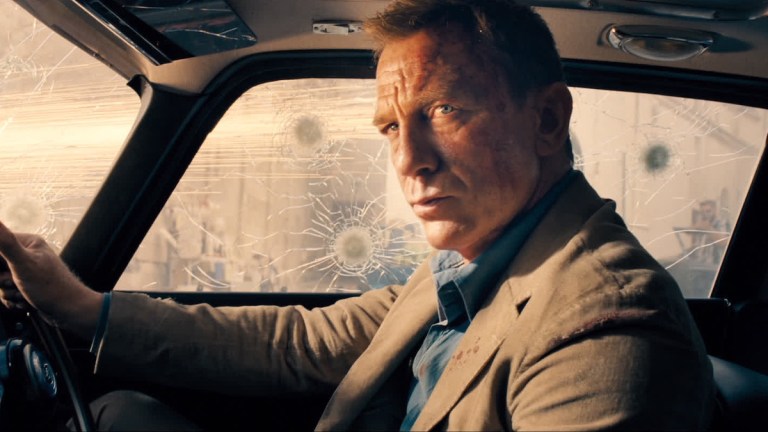James Bond Continuity Concerns Might Bring Back the Dumbest Fan Theory
Nobody cares about James Bond being consistent from movie to movie, except for that one time people tried to say that he was.

For some reason, Amazon cares about James Bond continuity. Having newly acquired the rights to Ian Fleming‘s superspy from Eon Productions, who have held those rights since producing Dr. No in 1962, the streamer is reportedly having trouble picking up from the last entry, No Time to Die. “The last time we saw Bond, he was poisoned and blown to smithereens—how will they get past the fact he is dead with a capital D?” said author Anthony Horowitz (via Radar). “I think that was a mistake, because Bond is a legend. He belongs to everybody, he is eternal—except in that film. If I was asked tomorrow to write the script, I wouldn’t be able to do it. Where would you start? You can’t have him waking up in the shower and saying it was all a dream.”
That’s… a weird concern for a character that has been played by six different actors over the six decades that Eon controlled the license. Only the most recent Daniel Craig movies have carried storylines across entries, and now all of a sudden Amazon has the character and strict storytelling rules are a key part of the franchise? This never happened to the other fella.
The scariest part of about Amazon’s apparent concern for continuity is that it threatens to bring back one of the oldest, and dumbest, fan theories in genre history. For years, some fans would contend that James Bond is not the name of the MI6 Agent designated 007. Rather, it was a code name, something that could be assumed by anyone assigned a particular mission.
On a surface level, it’s easy to see why fans would be attracted to the code name theory. After all, he gets played by different guys, sometimes with very different accents and personalities. He’s brutal and menacing when played by Sean Connery and Timothy Dalton, he’s refined and kind of silly when played by Roger Moore and Pierce Brosnan, he’s soulful when played by Craig, and Australian when played by George Lazenby. Moreover, he’s the greatest spy of all time who also tends to walk right up to the bad guy and declare himself as James Bond of British Intelligence. Surely all of this has to be a cover, right?
Well, not really. First of all, it ignores the way that all of these versions share the basic backstory, in which he was educated at Eton College and reached the rank of Commander in the English Navy. He plays baccarat, he badgers Q and flirts with Miss Moneypenny, and he orders his martini shaken not stirred. He lost and loved Tracy as Lazenby and sought revenge for her death as Connery and Moore.
But the bigger issue gets at the nature of fan theories in general. What is to be gained by saying something that no one in 27 movies thought worthwhile to explained? Does it make Bond more interesting? Does it enrich the themes of the movies? No, it doesn’t. It just distracts from the fun and spectacle of the franchise.
The great advantage of the Bond franchise has been its elasticity. Bond has been able to survive disastrous moments like bird double-takes and disrespecting the Beatles because he changes with the times and follows after trends, often putting a new spin on them. That can only happen if the character isn’t stuck in a strict timeline or continuity.
So yes, the Bond played by Daniel Craig is dead. But Bond is bigger than any one actor, not because he’s a code name to be passed around, but because he’s a character in a big, silly, delightful franchise that continues to change over time. Amazon needs to let Bond live by letting the plots from the Craig era die.
